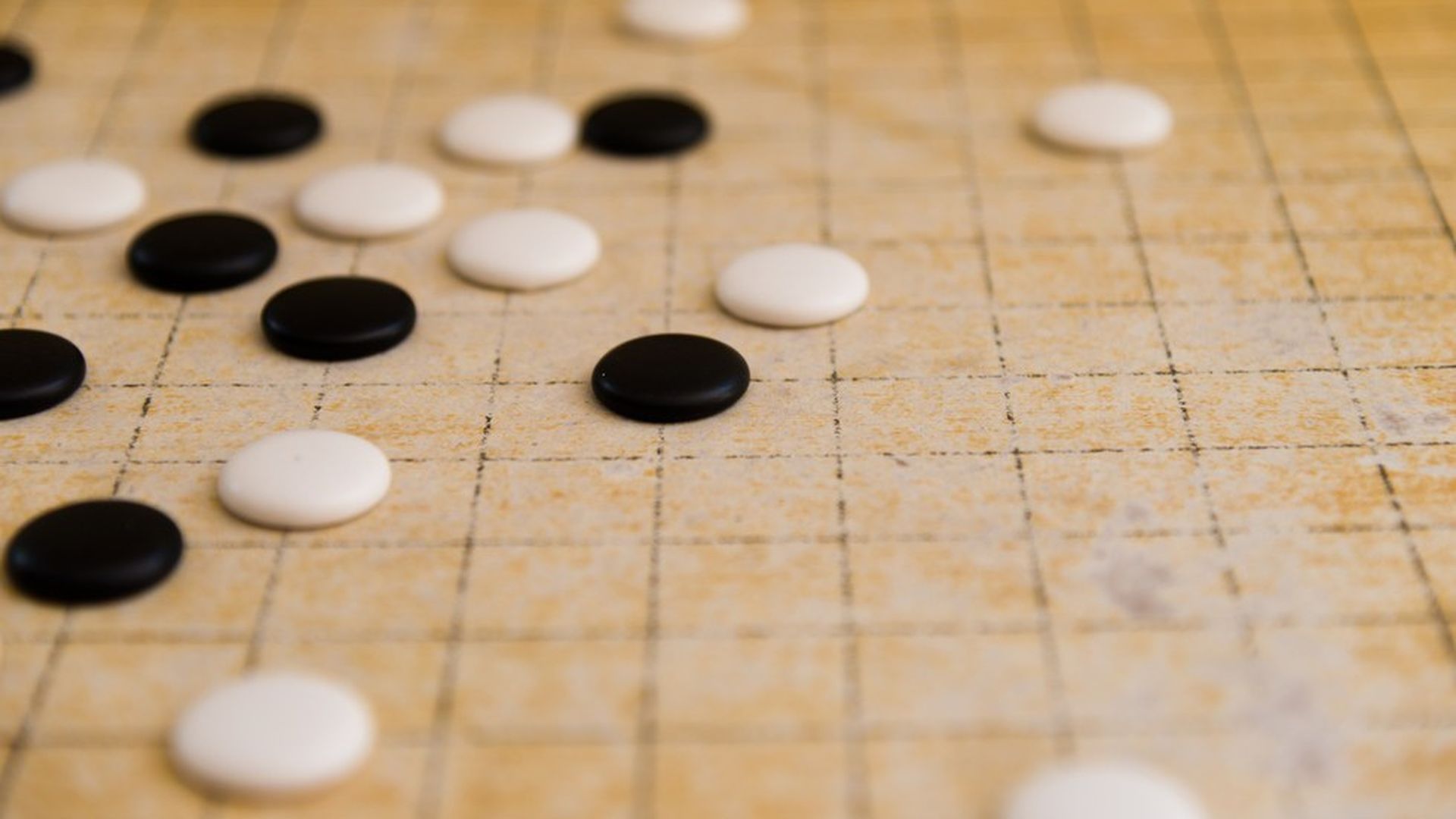New AlphaGo AI learns without help from humans
Add Axios as your preferred source to
see more of our stories on Google.

A game of Go. Photo: Baona / iStock
DeepMind's latest iteration of AlphaGo — the artificial intelligence that beat world champion Go player Lee Sedol in 2016 — can learn to play the ancient game without feedback from humans or data on their past plays, researchers report today in Nature. Instead, the new AlphaGo Zero started with just knowledge of the rules and learned from the success of a million random moves it made against itself.
The score: After three days of training, the AI beat the original AlphaGo 100 to 0 — and was also able to create new moves in the process. This demonstrates a decades-old idea called reinforcement learning, suggesting that "AIs based on reinforcement learning can perform much better than those that rely on human expertise," writes computer scientist Satinder Singh in his accompanying article.
What it means: If AI can utilize reinforcement learning, that could be important in cases where large amounts of human expertise isn't available. But, it isn't clear how much this strategy will generalize to other applications and problems, says the University of Washington's Pedro Domingos. Go, though more complex than chess, offers a problem with defined rules unlike a busy street with unpredictable pedestrians and ambiguous shadows that a robot-controlled car might operate in.
What's new: AlphaGo's initial iteration was trained on a database of human Go games whereas the newer AlphaGo Zero's artificial neural networks use the current state of the game as input. Through trial and error and feedback in the form of winning, the AI learned how to play.
It then used that same network to choose its next move whereas AlphaGo used a separate network. This reinforcement learning strategy, which was used extensively by AlphaGo as well, has its roots in psychology: the neural network learns from rewards like humans do.
The DeepMind researchers wrote: "the self-learned player performed much better overall, defeating the human-trained player within the first 24h of training. This suggests that AlphaGo Zero may be learning a strategy that is qualitatively different to human play."
How they did it: AlphaGo Zero uses less computing power than earlier versions but Google's immense computing power was still key. The sheer number of games the AI can play against itself is an advance, says Domingos, who is the author of a book called The Master Algorithm.
He points out though that the roughly 5 million training games of self-play it took for AlphaGo Zero to beat AlphaGo is "vastly more" than the number of games Sedol had played to become a champion.
Recent work suggests simpler forms of learning could achieve similar goals. A paper published earlier this year by OpenAI showed how a technique similar to hill-climbing — in which the AI basically starts with a solution then makes small tweaks to optimize it — can solve Atari games, albeit simpler than Go.
